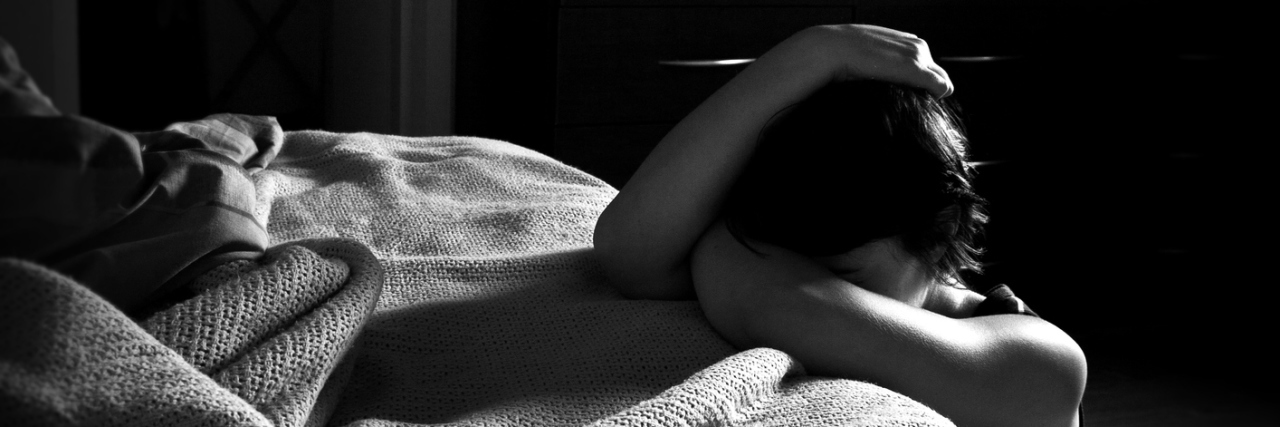About three years ago, I started to experience frequent flashbacks of some rather unfortunate events that I endured in my lifetime. The more those flashbacks appeared in my wake, the more they started to collide with each other to form nightmares that disrupted my sleep on a daily basis. There were times when the trauma would be far too destructive to my consciousness, leading to spontaneous panic attacks. Luckily, I was able to push away the haunting thoughts while conscious, but I couldn’t stop my post-traumatic stress disorder (PTSD) from evading my dreams.
I was working one summer afternoon when a loud military plane got too close to the surface, and the noise was so loud the ground shook. But while everyone saw it merely as a minor inconvenience, I saw myself sitting on the ground with my arms surrounding my legs, waiting for the loudness to disappear. I consciously blacked out, and I was momentarily inactive in every sense of the word. I was powerless.
Describing my symptoms to those around me, I am usually faced with laughter and confusion, as no one seemed to understand why I feared loud noises that much. When my music is too loud, I start to hear sirens in the back of my mind; when there are too many loud voices at a party, I feel a strong sense of claustrophobia and powerlessness. When I hear a loud motorbike sound on the street over the sound of my car stereo, I panic in silence as my mind shows me an image of an inevitable crash. I am quite literally vulnerable to my own mind’s doing, and this is now a known disorder coined as PTSD.
What I didn’t expect to happen, however, was my PTSD episodes to trigger the depression I am working hard to overcome. I started to wake up early and fear going back to sleep, often crying until I replace the images with happier memories. Suddenly, the PTSD would weaken my body and leave me unmotivated to go about my day, usually resulting in lying in bed, thinking about my disorder and how I can overcome it. But there was rarely ever an answer.
I started to occupy my mind with anything I could find. It could be reading books, watching movies and TV shows, playing instruments I simply didn’t have the talent or skill to play, and writing endlessly until my fingers died out. But while this coping mechanism seemed to work fairly well, the benefits were temporary, and the minute I was alone with my thoughts, I would sink back into the state of sadness and despair.
My PTSD meant I didn’t know how to react in triggering situations. I was unable to control my behavior at times, and when I felt pure anger, I expressed it as pure sadness. I saw my conditions intertwining and slowly taking over my state of mind completely, and I wanted to take control at any cost.
I started to research and discover the depths of my condition, and I was somehow keeping busy with things that were a positive occupation of my time. I studied more, I talked about my struggles more, and I wrote about my feelings when I couldn’t bear to talk. I started by telling my mind that those flashbacks would trigger a sense fear indefinitely; however, if I couldn’t control their occurrence, I could control the way I reacted to them. I told myself that those feelings of fear are simply there because of a time that has passed, of an event that happened once and never again.
Self-care was the most vital aspect of my healing, I suppressed the feelings of fear and sadness by taking time to indulge in activities that made me happy, such as exercise and healthy eating. I got some rest when my body needed it, and I took on hobbies that turned into meaningful skills and experiences.
While PTSD may still haunt me every now and then, the occurrence of my flashbacks seems to have decreased, and my getting older is slowly erasing the unfortunate events from my memory and clinging onto the brighter side of my life. Sometimes, we may find therapy within ourselves and our willingness to change and improve our lives for the better. I accept I will potentially never get rid of PTSD and depressive triggers, but at least I am knowledgeable in knowing how to take care of myself when the going gets tough.
Getty Images photo via 04linz

